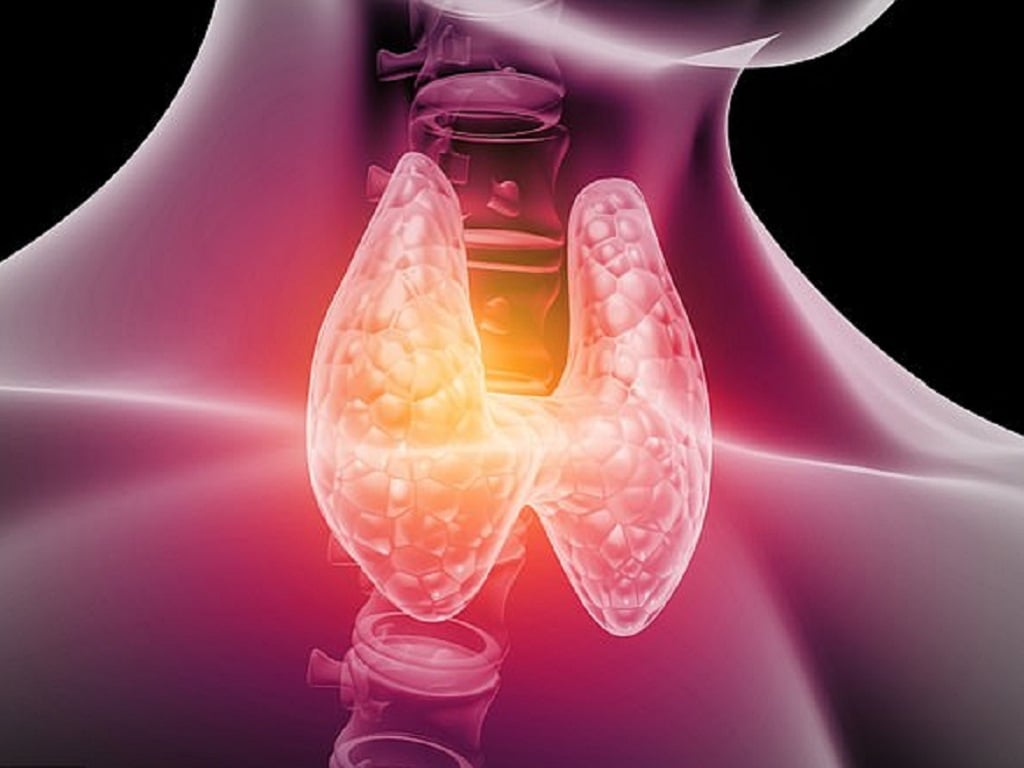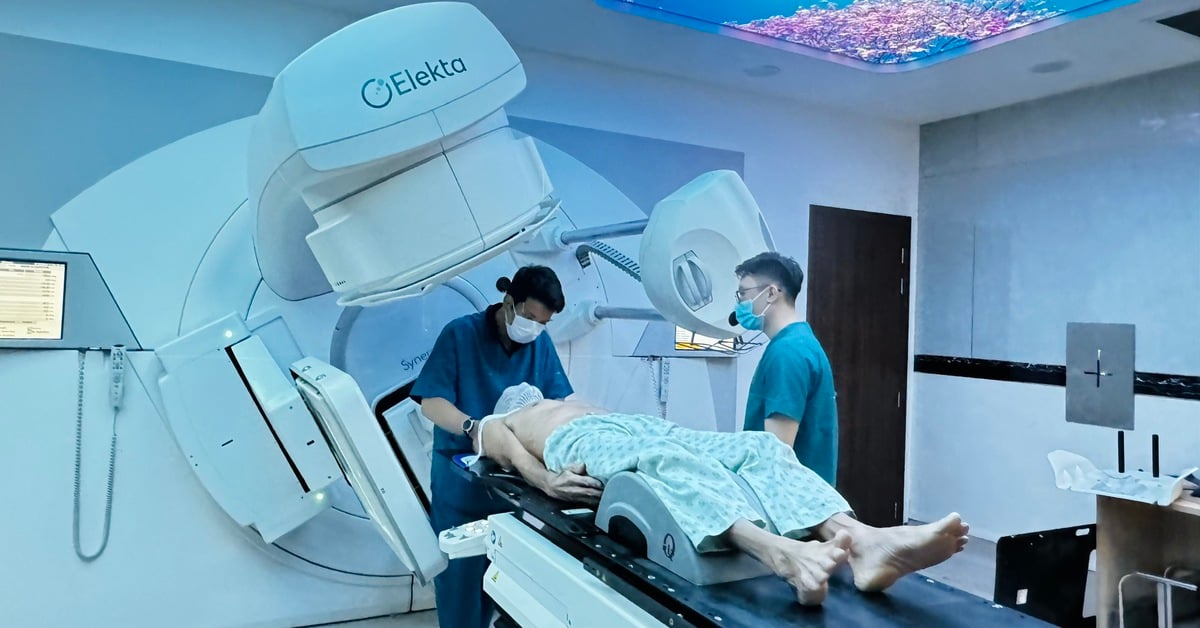The thyroid is a small, butterfly-shaped gland in the front of the neck. One of the most important functions of thyroid hormones is to control the body's metabolism. Therefore, the activity of the thyroid gland will affect every organ in the body, according to the health website Healthline (USA).

Hyperthyroidism causes the thyroid gland to become overactive, causing symptoms such as increased sweating, muscle weakness, bulging eyes, and increased urination.
Thyroid hormone balance is important for the body. Disease can occur if the thyroid gland produces too much or too little hormone. The most common thyroid disorders include:
Hyperthyroidism
Hyperthyroidism is a condition in which the thyroid gland is overactive, causing it to secrete more hormones than it needs. This results in a speeding up of many body functions.
Hyperthyroidism occurs more often in women than in men. Common symptoms of hyperthyroidism include increased sweating, muscle weakness, bulging eyes, frequent urination, and other symptoms.
It is important for patients to see a doctor immediately if they notice unusual symptoms. Common treatments for hyperthyroidism include antithyroid drugs, beta blockers, radioactive iodine therapy, and surgery.
Hypothyroidism
In hypothyroidism, the thyroid gland is almost inactive and does not secrete hormones, leading to a slowdown in metabolism and body functions.
Common symptoms of hypothyroidism include chronic fatigue, dry skin and hair, constipation, weight gain, memory problems, and several others. People with hypothyroidism will need to take thyroid hormone supplements.
Goiter
Goiter is an enlargement of the thyroid gland, leading to swelling in the neck. Iodine deficiency is one of the main causes of goiter.
Goiter usually occurs in women over 49 years old and with thyroid disorders. In addition, people who are obese, insulin resistant or have metabolic syndrome are at high risk of developing goiter.
Thyroid nodules
Thyroid nodules, also known as thyroid nodules, are small lumps that form on the thyroid gland. They are usually caused by iodine deficiency. Most of these nodules are benign. However, if they grow large, they can cause swelling in the neck and make it difficult to breathe.
Depending on the condition of the disease, the doctor will require monitoring, thyroid hormone therapy, antithyroid drugs or surgery, according to Healthline.
Source link


![[Photo] Looking back at the impressive moments of the Vietnamese rescue team in Myanmar](https://vstatic.vietnam.vn/vietnam/resource/IMAGE/2025/4/11/5623ca902a934e19b604c718265249d0)

![[Photo] "Beauties" participate in the parade rehearsal at Bien Hoa airport](https://vstatic.vietnam.vn/vietnam/resource/IMAGE/2025/4/11/155502af3384431e918de0e2e585d13a)


























![[Photo] Summary of parade practice in preparation for the April 30th celebration](https://vstatic.vietnam.vn/vietnam/resource/IMAGE/2025/4/11/78cfee0f2cc045b387ff1a4362b5950f)




























































Comment (0)